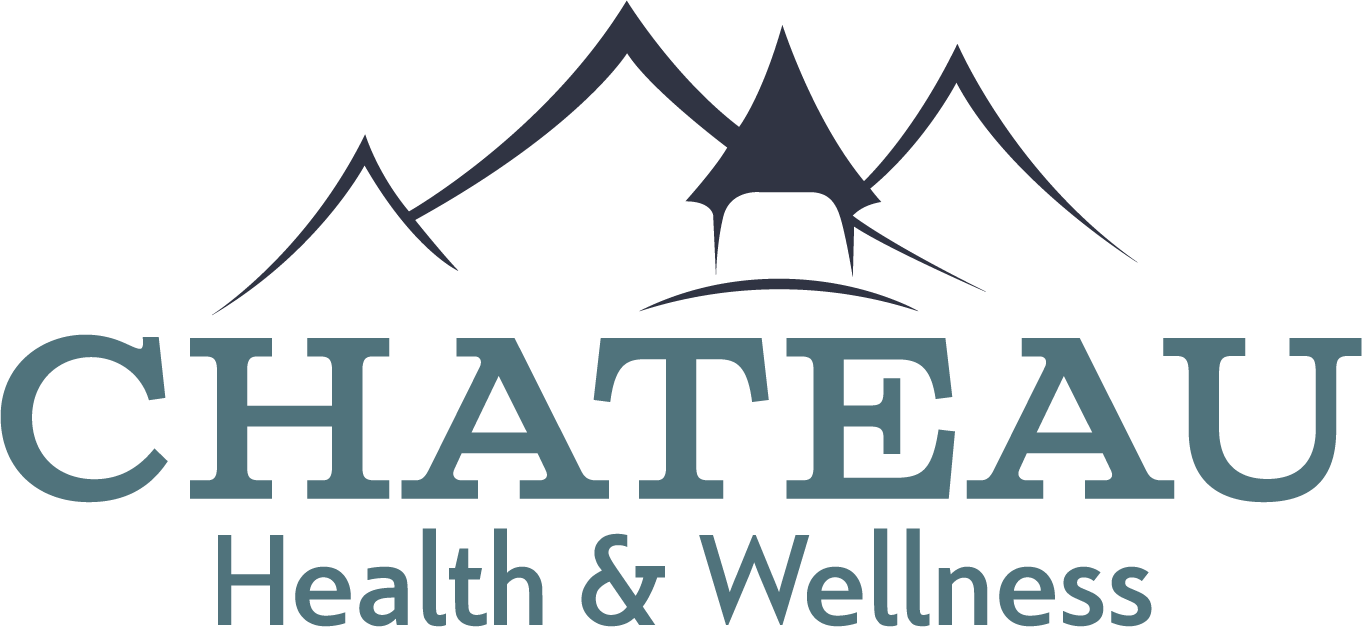
First Responder, Active Duty, and Veteran Residential Program
FOP VETTED & APPROVED FACILITY

Promoting Resiliency


Our Mission & Approach to First Responders
Our mission is to empower and equip first responders who strive for hope, health, and a new mindset in recovery. We understand the unique challenges of your profession and work alongside you and your support network to break free from the stigmas of addiction. With the right help and resources, you can achieve life-changing sobriety and reclaim your well-being.
Chateau Health & Wellness looks beyond just identifying and adjusting behaviors -- we explore the core reasons impacting your mindset, trauma, and environment. We utilize comprehensive trauma informed therapies like the Arbinger Outward Mindset and Dharma Recovery.

First Responder Residential
Program Overview
The Chateau
Difference
-
Industry Leaders Since 2012
-
1:4 Clinician to Client Ratio
-
Multiple Therapeutic Models
-
-
Cutting Edge Superior Care
-
Privacy in Utah's Wasatch Mountains
-
New fully renovated Residential Facility in 2025
-
-
Mature, Trauma-Informed Approach
-
Mature Population Ensures Results
-
Trauma-Informed, Master’s Level Clinicians
-
Trauma-Trained, Culturally Competent Staff
-
-
Camaraderie Through Shared Experience
-
Heal Among Peers Who Understand the Job
-
Build Lasting Bonds in a Supportive Environment
-
Strength in Shared Stories and Mutual Respect
-

What to Expect During Your Stay
A Safe Place to Heal. A Structured Path to Recovery.
At The Chateau, our residential program for first responders is built around the understanding that healing happens best in a safe, immersive environment—surrounded by others who truly understand the weight of the job. Whether you stay for 30, 60, or 90 days, you’ll be supported by a clinical team that specializes in treating the underlying causes of trauma, stress, substance use, and co-occurring mental health conditions.
Our program integrates a dual diagnosis approach with daily care designed around the Six Dimensions of Wellness: Mental & Emotional, Relationship, Physical, Family Systems, Spiritual, and Daily Living. These pillars form the foundation of our work, helping you reclaim balance, purpose, and health across all areas of life.
First Responder-Focused Treatment
Programming tailored to the unique challenges faced by law enforcement, fire, EMS, dispatch, and corrections professionals—guided by trauma-trained, culturally competent clinicians.
Dual Diagnosis Expertise
We address both substance use and mental health together, recognizing how they intersect in the lives of first responders.
Therapeutic Depth & Structure
Daily individual and group therapy, EMDR, CBT, family therapy, and experiential modalities like art, movement, and nature-based healing.
Wellness-Integrated Care
Each day includes support across all six dimensions—improving resilience, relationships, and long-term wellbeing in a way that’s personalized and sustainable.
Comfortable, Confidential Environment
Located in a newly renovated, private residential facility (2025), our setting offers the peace and security needed to fully focus on recovery.
Aftercare and Ongoing Support
The Journey Continues to Wellness
Healing doesn’t stop at discharge. We provide personalized aftercare planning to ensure a smooth and supported transition back to daily life—including outpatient referrals, peer support networks, and ongoing wellness resources.
We can work with your department, employer, or EAP to help coordinate care, communicate treatment plans (with your consent), and support your return to service or a new chapter. We can even assist with navigating your Employee Assistance Program (EAP) to access benefits and coverage options.

First Responder
Programs & Services

Who We Help

FOP Vetted & Approved Program
1 of 6 Vetted & Approved Facilities
-
Recognized by the National Fraternal Order of Police
-
As of February 2022, only 6 facilities are vetted and approved
Getting Help While on Duty
-
We help navigate department EAPs
-
We help you receive support while on active duty
-
We provide support at the residential level
Transition Support
-
Our support system continues beyond our facility
-
We help responders with their Self Leadership Plans
-
Provide ongoing Resiliency Training
-
Provide agency aftercare support

Trauma-Trained
Culturally Competent
We Treat the Whole Self
-
Comprehensive Assessments and Testing
-
Substance Abuse & Mental Health Education
-
Trauma & Development Focused Treatment
-
Reconnecting with Family & Values
-
Comprehensive Aftercare Planning
Mindset Training
-
Shift How We See Others
-
Shift How We See Ourselves
-
Change How We Approach Conflict
A New Relationship with Trauma
-
Processing Unresolved Events
-
Developing Trauma Response Skills
-
Expanding Stress Tolerance

Evidence Based Therapy Modalities
Chateau provides a range of trauma-specific modalities to help address and process your concerns including:
-
Eye Movement Desensitization & Reprogramming (EMDR)
-
Mindfulness Based Stress Reduction (MBSR)
-
Acceptance & Commitment Therapy (ACT)
-
Accelerated Resolution Therapy (ART)
-
Cognitive Behavioral Therapy (CBT)
-
Brainspotting & Neurofeedback
-
Motivational Interviewing (MI)
-
Individual & Group Therapy
-
RehabilitationNutritional
-
Family Systems Therapy

Aftercare Support & Transition
At Chateau, our ultimate goal is to help you overcome your addiction, avoid relapse and build a fulfilling life. Continued support is key to ongoing mental and physical health.
Family Education & Support
-
Provides Responder family and community support.
-
We believe that the off-duty environment plays a huge role in the overall wellness of First Responders.
12 Month Agency Responder Aftercare
-
First Responders who enter our residential program can count on ongoing support from our alumni resources.
-
First Responders can also count on continued communication with departments if needed.
Navigating Your Department's EAP
You cannot work during inpatient rehab; however, you can keep your job with either your department's existing Employee Assistant Program (EAP) or with the help of the Family Medical Leave Act (FMLA)
Free PDF Download: "Navigating Your EAP"
Learn how to start the conversation, ask the right questions, and what Chateau Health & Wellness can do to help.


Learning More About
First Responder Health

Common Issues:
You Are Not Alone
Over 80%
of first responders experience traumatic events on the job.
About 85%
of first responders have experienced symptoms related to mental health.
Up to 30%
of first responders are estimated to develop behavioral health conditions.
Only 49%
of first responders were offered "Psychological First Aid" after traumatic events.

Repeated Exposure to Trauma
First responders have a high exposure to trauma during their careers. Repetitive trauma results in physical and mental fatigue which can manifest as job stress, PTS, anxiety, depression, family problems, and addiction.

Putting Others First
“Essential workers are remaining strong and resilient for their patients, families, friends, and communities; however, the great personal risk they are taking to keep everybody else safe and healthy can have a toll on their own mental health.” -- Doreen Marshall, PHD

PTSD / PTS / PTSI Concerns
Trauma comes in all shapes and sizes. Research shows that it is a gateway to mental health issues, strained relationships, communication problems, and potential substance abuse. It's estimated that 30 percent of first responders develop behavioral health conditions as a result of trauma.

Alcohol & Substance Abuse
When emergency responders are faced with trauma and mental health issues, some turn to physical activity or counseling while others resort to alcoholic beverages because it's easy and accessible, especially when nearly half of first responders are not debriefed properly after traumatic events.

Retirement & Civilian Life Transition
Transitioning into civilian life after being a first responder can be difficult because there are not many jobs out there that offer the same level of challenge as emergency work does. This can leave first responders feeling lost and unfulfilled after retirement.

Addressing the Stigma: Talking About Mental Health
5x More Likely
First responders are 5x more likely to experience depression and PTSD.
7 out of 10
7 in 10 first responders say they rarely to never use mental health services.
57%
of first responders fear negative repercussions for seeking help.
40%
of first responders fear being demoted or fired for asking for mental health help.

Changing the Culture
As a first responder, you have an important role to play in helping others. Strength and bravery are highly valued traits — but it can also mean taking on "whatever the situation requires" without hesitation or fear for your own wellbeing.
Until recently, there has been a stigma around first responder's mental health conditions. Fortunately, this mentality, which perpetuates this misconception that these individuals are weak, is slowly disappearing.

Stigma By the Numbers
The stigma around mental health conditions is deeply engrained in our society and culture, but first responders have seen the positive effects that come from addressing it.
More than 7 out 8 police officers (and nearly 9 out 10 firefighters) say they'd be more likely to seek professional counseling if leadership within their organization speaks openly about experiences with depression or anxiety.

University of Phoenix Survey
First responders believe in the benefits of professional mental health treatment but are worried about repercussions; unfortunately this is what makes many first responders unwilling or hesitant about using the services.
The majority of first responders correctly believe that mental health treatment works for conditions like PTSD, depression and substance use disorders.

First Responder Resources
Substance Abuse Articles
-
Trying to Overcome Addiction in a Pandemic
-
Bridging the divide between mental health care and addiction treatment




























